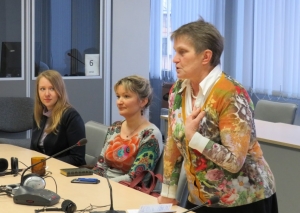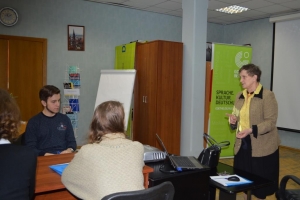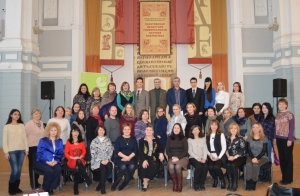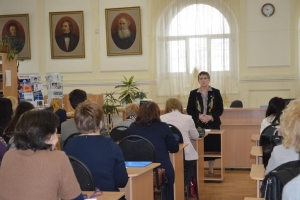All thumbs up to Polina Volkova!
On 17 March 2017 г. the Humanities Institute of St. Petersburg Polytechnical University (SPU) held the first international interpretation competition for students. The organizers are Maria Stepanova, SPU, and Boris Naimushin (New Bolgarian University, Sofia).
The first prize went to Polina Volkova, SCIT student (64 points), the runners-up with 63 points were Alexander Kussul (SPU) and Arthur Khaidarov (Herzen university), the third place with 57 points was shared by Alexander Verkhoglyadov (SPU) and Nikita Yakovenko (Herzen university). Congratulations to the laureates!

 Русский
Русский






